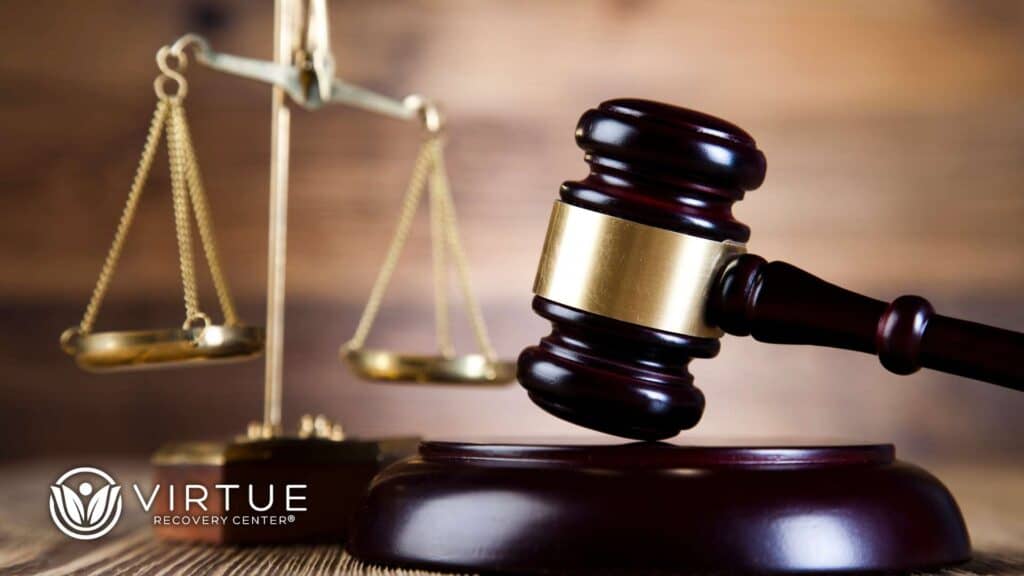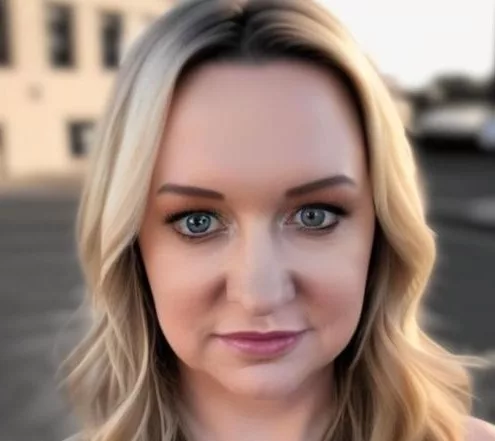
Table of Contents
Key Takeaways
- Cannabis Legalization is Expanding: More states are making marijuana legal, raising concerns about public health and safety.
- Rescheduling Could Change Access: Moving cannabis from Schedule 1 could increase access and use, bringing new risks.
- Health Risks of Legalization: More widespread cannabis use may lead to increased addiction, impaired driving, and mental health problems.
- Addiction Treatment is Essential: With the rise in cannabis use, addiction treatment programs will be necessary for those who become dependent.
Introduction
As the number of states legalizing marijuana use for medical and or recreational increases, the argument on the effects of cannabis on health has been on the rise. Even though most of the population supports legalization, some people fear the results of this process for society and public health. There is also the issue of the federal government possibly moving cannabis from its current Schedule 1 drug status. This change might also make marijuana even more accessible, and this has its own set of problems and issues. In this article, the topic of cannabis legalization will be examined, and the importance of addiction treatment in combating addiction will be explained.The State of Cannabis Legalization in the U.S.
Cannabis legalization is becoming more and more popular around the world. Some of the states have allowed the use of marijuana for medical purposes, while others allow anyone above the required age to use it. This change in law has made marijuana easily accessible to the public, and with that comes the benefits and also the detriments. The campaign for legalization at the state level has also created a debate at the federal level. At the moment, marijuana is a Schedule 1 drug under the Controlled Substances Act. This means that according to the federal government, marijuana has a high potential for abuse and has no accepted medical use like heroin or LSD. However, the need for marijuana to be moved from Schedule 1 is on the rise, and this is called rescheduling. If this happens, it could lead to even greater access to the drug across the country.What Does Rescheduling Cannabis Mean?
Understanding Schedule 1 Classification
If marijuana is rescheduled, it will be moved from the most dangerous substance list to the least risky one, and thus, it will be easier to use and possibly to research its effects. This may sound good to some people, but it has drawbacks.Increased Access and Risks
First of all, rescheduling would most certainly make marijuana even more accessible than it is now. It is expected that with easier access, many people will use it, including teenagers and young adults. It could, in turn, result in more people developing marijuana dependence, mental illness, and road accidents. On the one hand, rescheduling can help obtain more information on the medical uses of marijuana; on the other hand, it creates another avenue for the growth of the recreational uses of the substance with all the implications that come with it.The Dangers of Legalization
There are some positive points of legalizing marijuana, and one has to consider the effects of marijuana on people’s health. Of significant concern is the matter of making it easy for people to access cannabis since this means that once people start using cannabis, they will end up developing drug habits.Key Dangers of Cannabis Legalization
- Increased Risk of Addiction: However, some argue that marijuana is not addictive, and this is a lie. It may lead to marijuana dependence, a condition that affects a person’s ability to work or meet the demands of day-to-day life.
- Impaired Driving: Like alcohol, marijuana also affects a person’s ability to drive safely. As more people consume cannabis, there are more reports of people driving under the influence of the drug, and this is dangerous.
- Mental Health Issues: Regular use of marijuana, especially in large amounts, has been linked to mental health problems like anxiety, depression, and even psychosis in some cases.
- Health Risks for Youth: The teenage brain is still developing, and cannabis use during this critical time can lead to lasting damage, including memory problems and learning difficulties.
The Role of Addiction Treatment in Cannabis Use
With the increasing cases of legalization of the use of cannabis, more people may develop marijuana addiction. This is where professional substance use treatment becomes quite helpful. Some people believe that marijuana is not addictive, but it can be. Marijuana is a drug, and that means that once a person starts using it, they are likely to become addicted. When they want to quit, they will experience withdrawal symptoms like mood swings, insomnia, and the desire to use the substance again.How Addiction Treatment Helps
Counseling here in the recovery centers is enhanced to help heavy marijuana users stop using the substance. These programs include:- Therapy and Counseling: Reduction of the psychological and emotional needs that lead to substance use.
- Medical Support: Helping people reduce withdrawal discomfort in a supervised environment.
- Support Groups: Offering a group of individuals in the recovery process to help them through the process.
Conclusion
The legalization of cannabis has many implications for public health. While it has some benefits in the medical field, it also has its disadvantages, including abuse, driving under the influence of drugs, and mental health issues among young people. However, as the debate on rescheduling continues, it is necessary to look at some of the possible repercussions of marijuana use. If you or your friend is having a problem with marijuana addiction, it is high time to get professional help. To start your recovery journey, call Virtue Recovery Center at 866-461-3339.FAQs
What is a Schedule 1 drug, and why is cannabis listed as one?
A Schedule 1 drug is classified as having a high potential for abuse with no accepted medical use. Cannabis is currently in this category, though efforts are being made to reschedule it.What are the dangers of rescheduling marijuana?
Rescheduling marijuana could increase access and use, leading to more addiction, impaired driving, and mental health problems.How does cannabis legalization impact public health?
Legalization can lead to higher rates of marijuana addiction, more incidents of impaired driving, and health risks for young people.Can people become addicted to marijuana?
Yes, long-term use of marijuana can lead to addiction, and people may experience withdrawal symptoms when they try to quit.How does Virtue Recovery Center help with marijuana addiction?
We offer comprehensive addiction treatment programs that include therapy, medical support, and counseling to help individuals overcome marijuana addiction and achieve long-term recovery.How Does Vaping E-Cigarettes Impact Public Health in the Context of Cannabis Legalization?
As cannabis legalization expands, the dangers of vaping revealed become increasingly relevant. Public health officials are concerned about the rise in vaping among youth, which may lead to long-term respiratory issues and increased cannabis consumption. Understanding these risks is essential for effective regulation and education in a changing landscape.
Resources
https://www.ncbi.nlm.nih.gov/pmc/articles/PMC6181739/ https://cannabis.ny.gov/system/files/documents/2022/02/adult-use-cannabis-legalization_0_1.pdf https://www.oregon.gov/oha/ph/preventionwellness/marijuana/pages/laws.aspxAre You Covered For Treatment?
At Virtue Recovery Center, we understand the importance of accessible care. That’s why we’re in-network with numerous private insurance companies, ensuring that your journey to recovery is supported from the start. Let us help you quickly and easily verify your insurance coverage. Begin your path to healing today.
- About the Author
- Latest Posts
Nicki Lugo, CPC, LAC, LCADC, CCTS( Clinical Director )
Nicki Lugo is currently employed as Clinical Director at Virtue Recovery Center in Las Vegas. Nicki is a licensed clinical professional counselor (CPC) in the state of Nevada and a licensed associate counselor (LAC) in the state of Arizona. She is also a licensed clinical alcohol and drug counselor (LCADC) in Nevada. Additionally, Nicki has specialized training in treating trauma and is a certified clinical trauma specialist (CCTS).
Nicki has earned a Master of Science degree in Psychology with an emphasis in Behavioral Health from the University of Phoenix and a Master of Science in Professional Counseling from Grand Canyon University. Currently, Nicki is pursuing a Doctor of Philosophy (PhD) in Counseling Education and Supervision at Grand Canyon University. Nicki’s research interests include the use of Positive Psychology interventions with dual diagnosis clients. Nicki hopes to contribute to the body of knowledge in treating substance use disorders.
Nicki’s long-term career goals include advancing in leadership roles within Virtue Recovery Center which is a quickly growing substance use disorder treatment facility. She hopes that one day her research and advocacy will help to save the lives of those who have been affected by substance use. She likes to say that advocacy is her passion and leadership is her superpower.
Key Takeaways Regular exercise reduces cravings and withdrawal symptoms. Physical …
Key Takeaways Veterans Day began as Armistice Day in 1918 …
Key Takeaways Proper nutrition plays a vital role in addiction …
Key Takeaways Long-term sobriety is achievable with evidence-based addiction treatment …
Key Takeaways Mindfulness and meditation improve focus, emotional balance, and …
Key Takeaways Family involvement greatly improves the success of addiction …


























